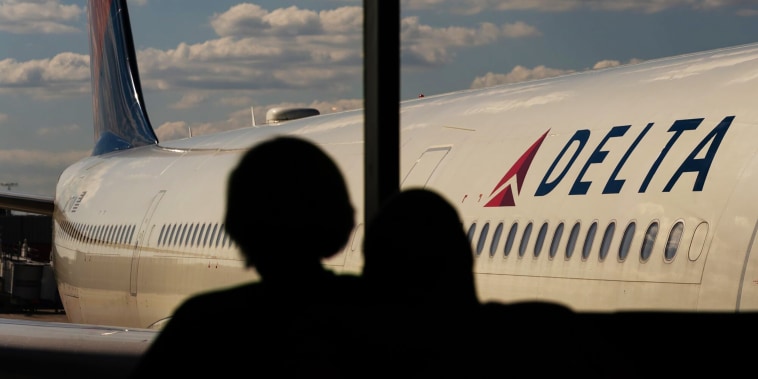Delta Air Lines has successfully positioned itself as America’s luxury airline, leaving its competitors, including United Airlines, scrambling to catch up. Delta’s strategic focus on customer service, aircraft upgrades, and premium offerings has allowed the airline to stand out in a highly competitive industry. While United has plans to enhance its services and regain market share, Delta’s lead in the luxury segment presents a significant challenge that United will need to address effectively in order to close the gap.
Customer Service as a Key Differentiator:
Delta’s emphasis on superior customer service has been a key factor in its transformation into a luxury airline. The airline has invested in training its staff to provide attentive and personalized service, creating a positive experience for passengers. Delta’s emphasis on treating customers well has earned it a loyal customer base that values the quality of service provided. United, on the other hand, has faced challenges in this area, with complaints about customer service and passenger experience impacting its reputation.
Aircraft Upgrades and Premium Offerings:
Delta’s commitment to upgrading its aircraft and offering premium services has further solidified its luxury positioning. The airline has invested in modernizing its fleet with state-of-the-art cabins, amenities, and entertainment options, providing passengers with a comfortable and enjoyable travel experience. Delta’s premium offerings, such as its Delta One business class seats and Delta Premium Select cabin, cater to travelers seeking upscale amenities and services. In contrast, United has lagged behind in upgrading its fleet and offerings, limiting its ability to compete effectively in the luxury segment.
Benefits of Delta’s Luxury Strategy:
Delta’s focus on establishing itself as America’s luxury airline has resulted in several benefits for the company. By differentiating itself from competitors through superior customer service and premium offerings, Delta has been able to attract high-value customers willing to pay a premium for luxury travel experiences. This has allowed Delta to increase its revenue and profitability, solidifying its position as a leading player in the industry. Additionally, Delta’s luxury strategy has helped enhance its brand reputation and market perception, further strengthening its competitive advantage.
Challenges for United:
United faces significant challenges in closing the gap with Delta and reclaiming its position in the luxury airline segment. The airline will need to invest in upgrading its aircraft and services to match the premium offerings provided by Delta. Additionally, United must prioritize improving its customer service and passenger experience to regain customer trust and loyalty. Overcoming these challenges will require a comprehensive strategy that focuses on enhancing all aspects of the airline’s operations to align with the expectations of luxury travelers.
In conclusion, Delta Air Lines has successfully established itself as America’s luxury airline through its strategic focus on customer service, aircraft upgrades, and premium offerings. United Airlines will need to address these areas effectively to compete with Delta and regain its position in the luxury segment. By investing in upgrading its fleet, improving customer service, and offering premium amenities, United can enhance its competitiveness and appeal to luxury travelers, narrowing the gap with Delta and solidifying its position in the market.
